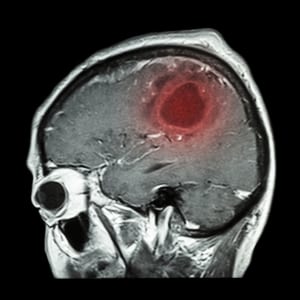 Brain tumor treatment is a complex process, which always involves a team of experts. At Herzliya Medical Center private hospital an individual treatment plan is drawn up with the participation of neurosurgeons, neuro-oncologists, radiologists, rehabilitation specialists, and representatives from other fields of medicine. A brain tumor can be either benign or of a malignant character. Benign tumors in most cases are characterized by slow growth and have clear boundaries. Malignant (cancerous) tumors exhibit aggressive growth and infiltrate into adjacent brain structures.
Brain tumor treatment is a complex process, which always involves a team of experts. At Herzliya Medical Center private hospital an individual treatment plan is drawn up with the participation of neurosurgeons, neuro-oncologists, radiologists, rehabilitation specialists, and representatives from other fields of medicine. A brain tumor can be either benign or of a malignant character. Benign tumors in most cases are characterized by slow growth and have clear boundaries. Malignant (cancerous) tumors exhibit aggressive growth and infiltrate into adjacent brain structures.
A cancerous brain tumor is a direct threat to life as a result of its rapid growth, it can also reach other critical brain regions, while metastases in distant organs are rare. Primary brain tumors include any tumors which start in the brain. Primary brain tumors start from brain cells, nerves, the membranes around the brain (meninges), or glands. Tumors damage cells by producing inflammation and placing pressure on other parts of the brain, increasing pressure within the skull. Secondary brain tumors are tumors that spread to the brain from different organs (metastatic) such as breast cancer, lung cancer, melanoma, and colorectal cancer.
Histological classification
Brain tumor treatment in Israel is primarily classified by the histological type of the tumor and the degree of malignancy. Histologic type is determined by the cells from which the primary tumor is formed. A total of more than 100 varieties of tumors are known, and many of them are classified into groups depending on the degree of atypicality of cells. Atypical cells – poorly differentiated immature cells are characterized by uncontrolled cell division and rapid growth; these tumors are formed having the highest degree of malignancy. The most common types of brain tumors include:
- Acoustic neuroma. A tumor formed by cells surrounding the auditory nerve and causes a reduction or a total loss in acuity and vestibular disorders
- Astrocytoma – a cancerous brain tumor, the severity of the clinical course and prognosis of which depend on the degree of malignancy. Astrocytoma grade 1 (low-grade) is also named pilocytic astrocytoma, more common in children and adolescents, is localized in the cerebellum, leading to movement disorders. Astrocytoma Grade 4 – glioblastoma – is localized mainly in the cerebral hemispheres or stem section and has a very poor prognosis
- Chordoma – is formed in the bone, sometimes penetrates into the structure of the brain or the spinal cord
- Lymphoma of the central nervous system – an aggressive tumor that develops in the lymphatic system and affects the brain and the spinal cord
- Craniopharyngioma – a brain tumor which is localized in the vicinity of the pituitary gland and optic nerves
- Brainstem glioma – originates in the medulla, pons or midbrain
- Meningioma – a tumor that originates from the shells of the brain or the spinal cord. Meningioma is classified according to the degree of malignancy. Benign meningioma is characterized by slow growth, but with the increase in its size it can cause compression of the brain tissue, cranial nerves or blood vessels
- Oligodendroglioma – in some categories isolated metastatic brain tumors, neuroectodermal tumors (eg, medulloblastoma), as well as tumors of the pituitary and pineal gland
All gliomas range from low grade to high grade (chaotic). The grade of the tumor is a vital feature for surviving the disease.
Brain tumor symptoms
Identifying the type, size and location of a tumor can affect the nature of treatment and ultimately the patient’s prognosis. Furthermore, these factors cause various signs and symptoms, for example:
- Frontal lobe tumors – difficulties in walking and talking, and loss of sense of smell
- Tumors of the cerebellum – may cause a lack of coordination between the brain and target organ and instability
- Parietal lobe tumors – reading and writing problems, and a lack of sensation on one side of the body
- Neuroma (nerve tumors) – hearing loss
- Craniopharyngioma (rare benign tumors above the pituitary gland) – visual disorders
Therefore, a patient who is able to describe his various symptoms can help the medical team effectively determine the approximate location and possibly the type of the tumor. Symptoms of brain tumors (among the many symptoms) can also include:
- Headaches
- Convulsions
- Emotional or behavioral changes
- Incoordination
- Amnesia
- Speech disorders
- paralysis one side of the body
Diagnosis of brain tumor
A brain tumor is usually diagnosed with an MRI. Furthermore, the diagnosis of brain tumors includes biopsy and a histopathological examination, allowing to establish the type and grade of the tumor (1 to 4). Thus, it is possible to make a preliminary forecast and predict the dynamics of the disease.
Brain tumor surgery in Israel
The treatment of brain tumors in Israel, in most cases, ends in surgery. Neurosurgeons aim to remove the tumor entirely and if this is not possible, the maximum allowable. To facilitate the orientation of the surgeon during the removal of the tumor and to reduce the risk of accidental damage to healthy brain structures, Herzliya Medical Center specialists use the equipment for stereotactic navigation. Surgical treatment combined with additional measures include:
- Chemotherapy. Chemotherapy may be used in combination with radiotherapy or as an alternative method of treatment.
- Targeted therapy. Targeted agents identify specific molecular components and cause cancer cells to stop cell division and growth
At Herzliya Medical Center the treatment of brain tumors is made using the latest surgical and conservative methods: radiosurgery, conformal and intensity-modulated radiation therapy, targeted therapy and chemotherapy.
 Patients Log In
Patients Log In 










